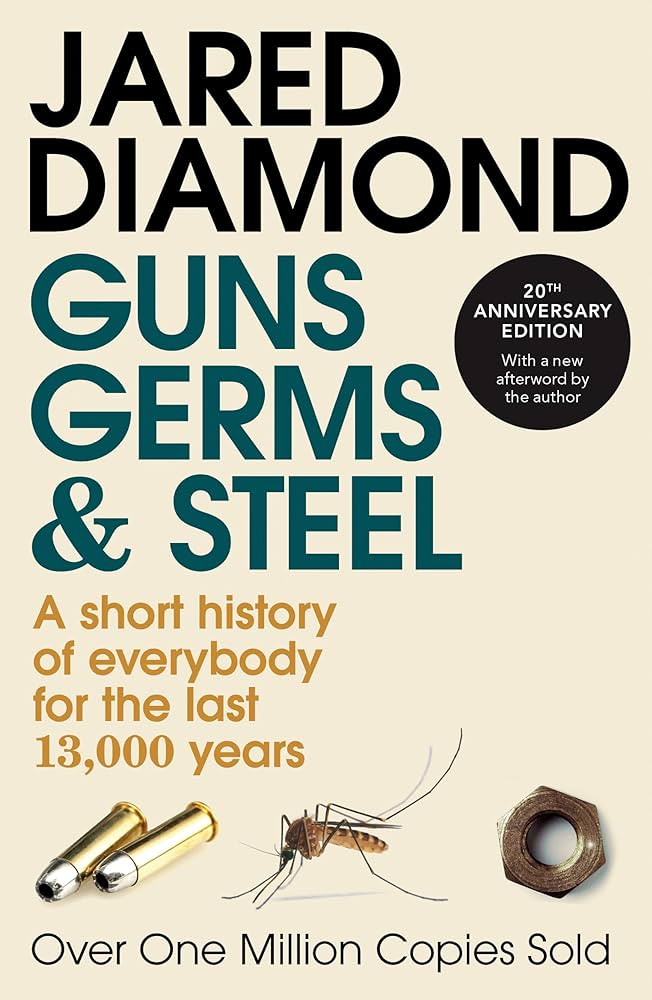"Diamond has written a book of remarkable scope ... one of the most important and readable works on the human past published in recent years."
In this "artful, informative, and delightful" book (William H. McNeill, New York Review of Books), Jared Diamond convincingly argues that geographical and environmental factors shaped the modern world. Societies that had a head start in food production advanced beyond the hunter-gatherer stage, and then developed writing, technology, government, and organized religion—as well as nasty germs and potent weapons of war—and adventured on sea and land to conquer and decimate preliterate cultures. A major advance in our understanding of human societies, Guns, Germs, and Steel chronicles the way that the modern world came to be and stunningly dismantles racially based theories of human history.
Winner of the Pulitzer Prize, the Phi Beta Kappa Award in Science, the Rhone-Poulenc Prize, and the Commonwealth Club of California's Gold Medal
In 1998, it won the Pulitzer Prize for general nonfiction and the Aventis Prize for Best Science Book. A documentary based on the book, and produced by the National Geographic Society, was broadcast on PBS in July 2005.
As a "bonus," here's an absorbing take on history itself, in this New York Review exchange between the two eminent historians, Jared Diamond and William McNeill, on the merits of their different contexts for analyzing historical trends over the long term:
https://www.nybooks.com/articles/1997/06/26/guns-germs-and-steel/
